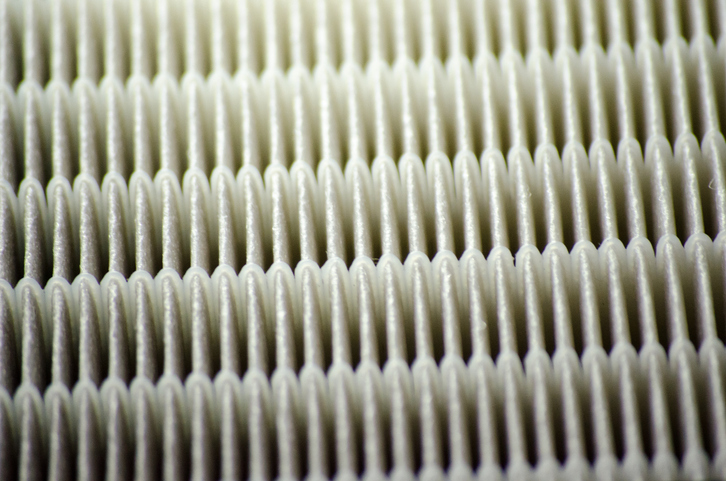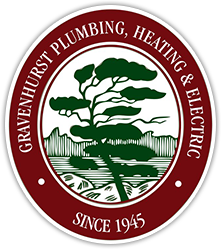Click here to Subscribe to Chips Tips Blog
How to Protect Yourself While You Shelter in Place

As of today, all of Ontario remains under a shelter-in-place order until further notice.
This is good for public and personal safety. But it is hard to feel like it is really enough.
Here at Gravenhurst Plumbing, Heating and Electric, we remain at your service (although our office is closed and we are working remotely, for everyone's safety).
Many of our calls each day are from worried customers who want to know what else they can do to improve indoor air quality.
This is a great question! In fact, it is one area where you can actually make a difference for your family's safety as we all ride out the pandemic together.
In this post, learn about recent recommendations for the use of masks, HEPA filters, ultraviolet air purifiers and other protective tools.
Do Masks Work to Limit the COVID-19 Threat?
The simple answer is "yes." Masks do work to help limit the threat.
But then why have officials been so vague about whether or not to wear masks?
There are three main reasons:
-
Officials are concerned about the insufficient supply of masks for front-line health care workers and critically ill patients.
-
Some masks work well only when they are properly fit-tested before use (N95 masks are a primary example).
-
Masks are much more effective in stopping already infected people from spreading coronavirus particles (whether those people are symptomatic or not) than they are in protecting healthy people from coming in contact with those particles.
This last point is one of the main reasons that North America has lagged behind many other parts of the world in requiring the use of face masks.
But now that scientists are realizing that asymptomatic (healthy-appearing) people can spread coronavirus to others, there is more pressure to require the use of masks for everyone.
Ultraviolet Light Is a Powerful Purifier
Did you know the sun produces three different types of ultraviolet light? Ultraviolet-A and ultraviolet-B are the two types of UV light from which sunscreen is designed to protect you.
Ultraviolet-C is the sun's most powerful UV light beam, but it is typically blocked by the Earth's ozone layer.
As the BBC reports, it is UV-C that is powerful enough to damage coronavirus germs so they cannot cause disease.
However, you wouldn't want to expose your skin to UV-C – it is so powerful it can cause eye damage and skin burns in just a few seconds.
The safe way to use UV-C is with an ultraviolet light air purifier. Two main types of UV air purifiers exist. One type can purify the air. The other type can purify the water.
Coronavirus germs are thought to be transmitted mainly by being in close proximity when someone sneezes or coughs or even speaks, and through touch, although there is no harm in purifying your water as well.
HEPA Filtration Is Recommended for Hospitals and Clinics
If you have air travel scheduled during this pandemic, you may be understandably worried about how risky it is to fly.
Here in Canada, airline companies are instituting a variety of additional measures to protect passengers.
One of those measures is equipping planes with HEPA air filters. HEPA, or high efficiency particulate air, filters can trap particulates as small as 1/100th the size of a single human hair with 99.97 percent efficiency.
For this reason, it can make sense to use a portable or whole-home HEPA filtration system to protect your family. Use of HEPA filtration can be especially important if anyone in your family is immuno-compromised, elderly or contracts COVID-19.
Heat and Humidification: Two More Important Tools
While health officials are not sure exactly how important heat and humidity will be in the still-unfolding battle against coronavirus, there is some evidence that both can be important players.
Humidity helps your respiratory passages make more beneficial mucus to trap virus particles and prevent them from harming you. And heat can make it harder for coronavirus germs to survive.
While neither will prevent you from contracting COVID-19, keeping a warmer, more humid home environment may lessen the risk.
The Vital Importance of Indoor Air Quality to Protect Against COVID-19
Maintaining a high level of indoor air quality is vitally important for more reasons than just keeping you from coming in contact with coronavirus.
There are many other toxins that can harm your respiratory passages and lungs, lowering your resistance to COVID-19.
So while cleaning up your indoor air may not fully protect you from coronavirus, it can boost your immune system and keep you healthier in the event you do come in contact with coronavirus germs.
HEPA filters and ultraviolet air purifiers can filter out both the majority of these other toxins and coronavirus particles.
Your furnace filter also plays an important role in keeping you healthier. While most furnace filters are not dense enough to trap tiny microparticles like coronavirus, they can trap dust, dirt, pet dander, pollen and other debris that can clog up your lungs.
This is why we can't emphasize enough the importance of changing your furnace filter regularly. In fact, this is one thing you can do right now to help protect your family. Just go take a look at your furnace filter.
If your furnace filter looks dirty, go ahead and replace it. Err on the side of caution during this dangerous time and replace it more frequently than you normally would.
The same holds true for the filter on your vacuum cleaner and any other home appliances, including your clothes dryer. Keep those filters squeaky clean so they can do their job and help keep your family healthier and stronger.
Get in Touch
Heating, air conditioning, plumbing and electric have been deemed essential services for Ontario. While our office is closed, we remain available to serve you by phone and on-site as needed. Contactless payment options are available.
Please read our special notice about COVID-19 and how to reach us with urgent maintenance or repair needs.

